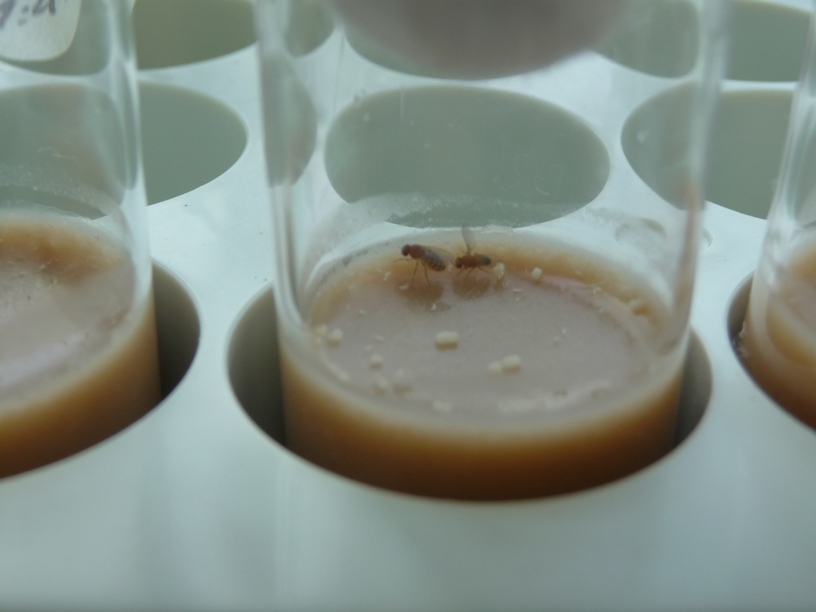Parental environment can widely influence offspring phenotype, but paternal effects in the absence of parental care remain poorly understood. This study looks at the question if protein content in the larval diet of fathers affected paternity success and gene expression in their sons. Fruit flies (Drosphila melanogaster) males reared on high protein diet had sons that fared better during sperm competition, suggesting that postcopulatory sexual selection is subject to transgenerational paternal effects. Moreover, immune response genes were downregulated in sons of low-protein fathers, while genes involved in metabolic and reproductive processes were upregulated. informacion[at]ebd.csic.es: Zajitschek et al (2017) High-protein paternal diet confers an advantage to sons in sperm competition. Biol. Lett. 20160914. Doi 10.1098/rsbl.2016.0914
http://rsbl.royalsocietypublishing.org/content/13/2/20160914

 Las altas temperaturas están provocando que las lagunas y las marismas de Doñana pierdan agua rápidamente
Las altas temperaturas están provocando que las lagunas y las marismas de Doñana pierdan agua rápidamente




